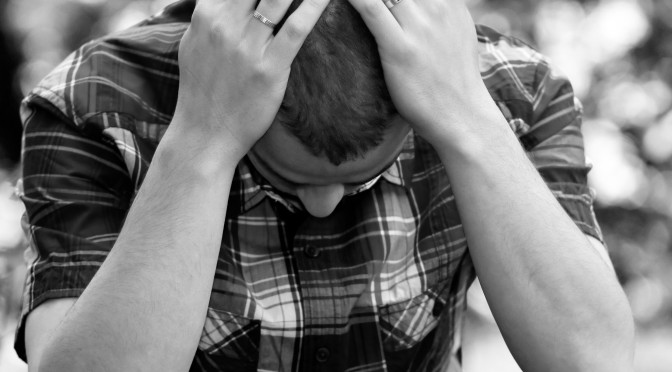“Are you feeling depressed?” the nurse asked.
She was taking my vitals before the doctor came into the examination room and was working her way through a checklist of questions. This one happened to be about a check-up from the neck up.
Well, as a matter of fact, funny you should ask, I told her.
Her simple question was like a key turning in a lock and opening a door.
For a few months leading up to that visit for my annual physical, I had been feeling overwhelmed by work, frightened — nay, panicked — over my future employment and overall just not feeling much happiness.
This was January 2014 and the Christmas holidays that had just concluded were shrouded in a heavy curtain of gray for me.
What followed was a series of questions from the doctor. Now, as part of their routine for check-ups, the office was including a screening for depression.
So glad they did.
The doctor, who wanted me to follow up with her in a few months, was adamant that I go see a professional for help. So I did.
Here’s the thing about depression: It sneaks up on you like the onset of a bad cold but before you know it, you have pneumonia.
You convince yourself you’re just tired. Or stressed. Or not eating right.
And certainly all of those are symptoms of an underlying problem and can contribute to the bigger issue, but at some point, you reach a tipping point where you are trying to climb out of a well, the sides of which are coated with slippery moss.
Much was written about depression following the heart-breaking suicide of one of my beloved comedians and actors, Robin Williams. One of the best pieces I read was by a former colleague at the Pocono Record.
Here is what Howard Frank said in a column:
“The pain from depression is like the grief of first learning you’ve lost someone close to you. There’s shock, horror, confusion, and inconsolable sadness.
Now, imagine waking up with that grief every morning as if it were fresh news. Then imagine reliving the news all day. Go to sleep, and it’s Groundhog Day.”
It’s an apt description. And one that I fear is all too commonly experienced by many, including people close to me.
The problem with men (OK, just ONE of many problems with us guys) is that when it comes to our own care, we think we can just tough it out. (“It’s just a flesh wound!”)
For issues that are not manifestly physical (such as our mental health), well there’s all kinds of excuses we can make for ignoring them.
In the end, I did see a counselor — for about eight months. Yes, it cost me time and money, but in the long run, it did me good.
And if someone as stubborn and reluctant as me can do it, what about you?

